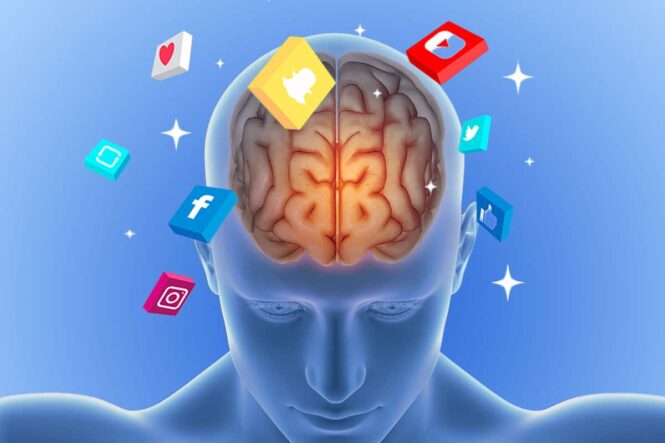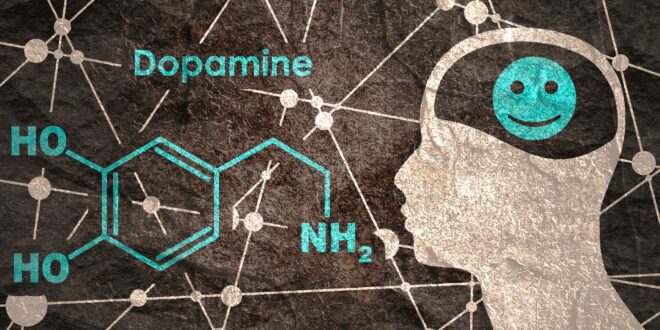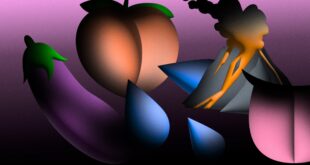Let’s challenge ourselves with something unheard of. For the duration of this article, try not to cave into your strongest impulses. Don’t check your phone. No, not even if there’s a notification sound. I’ll do the same while writing. If you’re scared to commit, you might be addicted.
In a way, we’re all hooked to our modern way of living. Whether it’s smartphones, social media, Netflix, fast food, shopping, or porn, we’re all being served our dopamine fixes.
Science says dopamine is a feel-good chemical, so why does it feel so bad?
What Is a “Modern-Day Hypodermic Needle”?
“We’re seeing a huge explosion in the numbers of people struggling with minor addictions,” according to Dr. Anna Lembke. She’s written a book on it called “Dopamine Nation,” where she calls your smartphone the “modern-day hypodermic needle.” To be honest, she has a point.
Addiction has always been related to dopamine levels in the brain. Heroin, alcohol, gambling, and many other types of addiction work similarly – they make you feel better by stimulating your brain to produce more happy chemicals. The problem is, it’s only temporary.
So, in addition to substance addictions, we are currently facing an epidemic of behavioral addictions – scrolling, posting, liking, tweeting, and clicking. Every second is a chance for a new dopamine drip – the more we have it, the more we need it. You know what that feels like.
Can You Really Get Addicted to a Dopamine Rush?

According to Sherief Abu-Moustafa, Founder and CEO of Sunlight Recovery, you can’t really get addicted to dopamine. Sherief Abu-Moustafa has been treating addicts for over 25 years and has been studying dopamine first-hand. Dopamine is only a motivator.
“Take alcohol, for example,” he explains. “A person who is happy and fulfilled in life can enjoy a glass of wine now and then and not get addicted. Authentic happiness gives you the ability to say no to instant, unhealthy pleasures when you’ve had enough. It’s the same with dopamine”.
So if you’re addicted to something, whatever that is, don’t blame it on dopamine. There are many other causes of addiction, biological and environmental alike. If you can’t understand the reasons behind your unhealthy cravings, ask family and friends for help or see a therapist.
What Are the Signs of a Dopamine Addiction?
Some of the most common types of dopamine addictions are substance abuse, social media addiction, eating disorders, video game addiction, and sex and masturbation addiction. If you’re guilty of any of the following unhealthy behaviors, you’re probably a dopamine addict:
- Obsessive and compulsive behavior;
- Not being able to fulfill commitments;
- Getting aggressive during abstinence.
Excessive Cravings: If you find yourself constantly yearning for activities that provide instant gratification, like excessive gaming, binge-watching, or frequent social media use, it could be a sign of a dopamine addiction. The intense desire for that quick dopamine fix becomes hard to resist.
Neglecting Responsibilities: Are important areas of your life, such as work, relationships, or personal well-being, taking a backseat because you’re chasing activities that trigger dopamine release? Neglecting responsibilities and priorities is a red flag that your brain might be hooked on the reward rather than maintaining a balanced life.
Failed Attempts to Cut Back: Trying to cut down on the dopamine-inducing activities without success is another indicator. If despite recognizing the negative impact on your life, you find it challenging to reduce or control these behaviors, it suggests a deeper reliance on the dopamine rush.
Escalating Tolerance: Similar to substance addictions, you might notice that over time, you need more of the activity to achieve the same level of satisfaction. This increasing tolerance is a classic sign of addiction, indicating that your brain is becoming desensitized to the usual dopamine stimuli.
Negative Consequences Ignored: Continuing these activities despite negative consequences is a clear sign of a dopamine-driven addiction. Whether it’s impaired relationships, declining physical health, or compromised work performance, the pursuit of that feel-good sensation takes precedence over the potential harm it’s causing.
Have you ever broken a deadline at work or school because you just had to watch another episode? That falls under compulsive behavior and inability to fulfill obligations.
Pleasure-Seeking Leads to Depression and Anxiety

The leading cause of all addiction problems is that the comfort, validation, and happiness we feel with each fix lasts for a very short time. And, because the brain is wired to develop tolerance to pleasure-producing stimuli, these feelings of happiness get weaker and shorter every time.
In other words, we get used to it, so we need a bigger dose to feel normal again. Scientists call this a “dopamine deficit state.” That’s the reason we’re all depressed.
Cravings, irritability, insomnia, anxiety, and depression are common side effects of addiction. They hit during withdrawal periods when the brain feels even worse after realizing it hasn’t been happy for a while. Eventually, no amount of dopamine is enough for pleasure.
How to Get Clean and Restore Balance in Life

Yoga could be the answer, or committing to a really good (and really thick) book. You can take a long hike. Get a hobby. Spend some time in nature. Removing the source of addiction from your daily life – and physical space – is the first step. That’s how you break the cycle and detox.
Of course, it sounds easier than it is. Because, let’s face it, you cannot actually turn off your phone. Getting rid of modern-day addictions, like for example – gambling addiction is so difficult because they are an integral part of our lives. That’s why you need to be committed. Leave your phone on, but delete the app.
Like TikTok, pot, and sugar, yoga, books, and hobbies are distractions. The big difference is – they are very healthy for your mind, body, and soul. They don’t make you anxious and depressed. Also, you can share them with the right people. Self-improvement is the best dopamine rush.
Conclusion
Our “small” addictions might feel harmless, but they are really not. If you’re still high on yours, you’re probably not ready to give them up. You will, in time. If you’re battling a “big” addiction, please seek professional help. Somebody out there needs you to raise their dopamine.
 Imagup General Magazine 2024
Imagup General Magazine 2024



